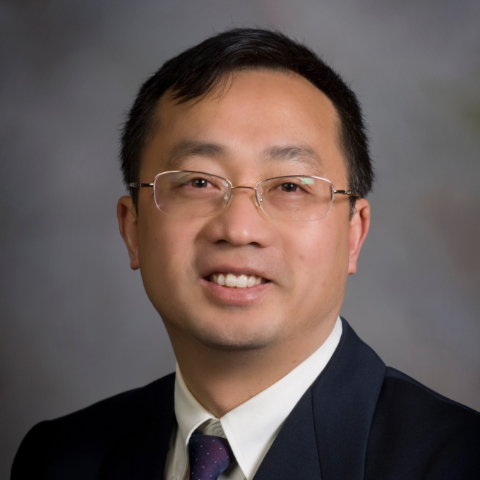Shuhai Xiao

Shuhai Xiao is a paleobiologist and geobiologist who studies the interactions between the biosphere and its environments at critical transitions in Earth history, particularly during the Ediacaran-Cambrian transition. He integrates paleobiological, sedimentological, and geochemical data to shed light on important evolutionary events (such as the origin and diversification of eukaryotes, multicellular organisms, and animals), their environmental contexts, and their geobiological consequences.
Education
Ph.D., Organismic and Evolutionary Biology, Harvard University, 1998
M.A., Organismic and Evolutionary Biology, Harvard University, 1996
M.Sc., Geology, Peking University, 1991
B.Sc., Geology, Peking University, 1988
Dr. Xiao is interested in how the biosphere and its environments interacted at critical transitions in Earth history. His research is focused on key evolutionary innovations such as the origin and early diversification of eukaryotes, multicellular organisms, and animals. What was the environmental and ecological context of these evolutionary innovations? How did they impact on the surface environments of the Earth? Through collaboration with other scientists, he integrates paleobiological, sedimentological, stratigraphic, and geochemical data to answer these questions. His current research projects are focused on the Ediacaran-Cambrian transition, although he has worked on older and younger rocks, as well as the taphonomy of exceptionally preserved fossils. His main expertise is paleobiology, but he has developed extensive collaborations with geochemists and has employed a diverse range of research tools to solve complex scientific problems.
Dr. Xiao’s group currently includes four PhD students (Natasha Bykova, Drew Hawkins, and Qing Tang) and one visiting scientist (Dr. Wei Wang). Natasha studies the Paleobiology and taphonomy of Ediacaran fossils from northern Siberia. Drew Hawkins works on computer simulation of sampling biases as well as the taphonomy of worm-like fossils and acritarch microfossils. Qing analyzes Tonian macro- and microfossils from North China to understand the evolution of eukaryotes and multicellular life before snowball Earth glaciations. Wei is a geochemist interested in the reconstruction of redox conditions of Ediacaran oceans using the stable isotopes of C, S, and N.
For complete list of publications, please visit https://sites.google.com/vt.edu/geobiology/publications
Dr. Xiao is dedicated to Earth science education. He has regularly taught two undergraduate courses (“Earth and Life through Time” and “Paleontology) and two graduate courses (“Earth System History” and “Advanced Topics in Sedimentology, Stratigraphy, and Geobiology”).
- 2024 Raymond Moore Medal, SEPM Society of Sedimentary Geology
- 2023 Member, Virginia Academy of Science, Engineering and Medicine
- 2023 ICS Medal, International Commission on Stratigraphy
- 2023 Member, National Academy of Sciences
- 2021 NAS Award in the Evolution of Earth and Life - Mary Clark Thompson Medal
- 2019 Fellow, American Association for the Advancement of Science (AAAS)
- 2017 Virginia Outstanding Scientist Award
- 2015 Fellow, Geological Society of America
- 2010 Guggenheim Fellowship
- 2010 Virginia Tech Alumni Award for Excellence in Research
- 2007 Fellow, Paleontological Society
- 2006 Paleontological Society Charles Schuchert Award
Dr. Xiao makes regular contributions to the Museum of Geosciences at Virginia Tech. He has given numerous lectures to K-12 teachers (e.g., workshop for Earth science teachers at Franklin County High School, Virginia; workshop for evolutionary biology teachers, Guizhou University), public museums (e.g., Carnegie Museum of Natural History), and public forums (e.g., Darwin 200 Forum at Peking University, China; Sir Albert Charles Seward Memorial Lecture in Lucknow, India; Second World Summit on Evolution, Galapagos).


